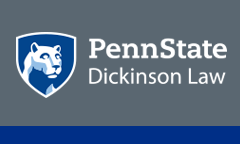Document Type
Article
Publication Date
2025
Abstract
Employee benefits often comprise between 24% and 26% of an employee’s total compensation. As such, it is important that people know what benefits companies actually offer. Unfortunately, instead of being transparent, numerous companies engage in what this author calls “benefits washing.” Benefits washing occurs when companies provide vague or misleading information about their employee benefits in an effort to make their benefits appear better than they are. The practice occurs in three primary ways: detail omission, attention deflection, and deceptive manipulation.
This Essay elaborates on what constitutes benefits washing. It presents numerous examples of America’s largest employers engaging in benefits washing, focusing on 401(k) plan benefits (due to the numerous variances allowed in such plans), paid parental leave, abortion related travel benefits, “free” training, and remote work. Next, it analyzes why benefits washing occurs. It then discusses the impact and harmful effects of benefits washing. This Essay concludes by describing the limitations of legal claims available to victims of benefits washing.
Publication Title
Georgetown Law Journal
Recommended Citation
Samantha Prince, Benefits Washing, 117 Georgetown Law Journal 52 (2025).


